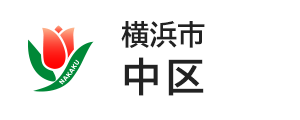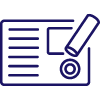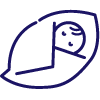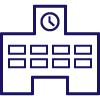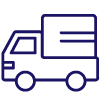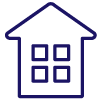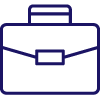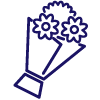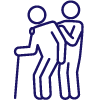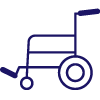ここから本文です。
Illness
Last updated date:2025/5/7
Seeing a Doctor
●Multilingual Medical Questionnaire (23 languages)
When you’re worried about communicating your symptoms at a hospital, the Multilingual Medical Questionnaire is helpful. Prepare the questionnaire before your visit.
⇒Multilingual Medical Questionnaire(外部サイト)
(Creators: NPO International Community Hearty Konandai Kanagawa International Foundation)
Health Insurance
Everyone, including foreign residents, must join a public health insurance program in Japan. There are very few exceptions. The types of public health insurance are employer based health insurance, health insurance for persons 75 and older and, for others, National Health Insurance. If you are not enrolled in employer based health insurance, you will join the National Health Insurance program. However, this is not automatic. You must visit the Hoken Nenkin (Health Insurance and Pension) Division at Naka Ward Office to apply.
⇒Joining and leaving the National Health Insurance scheme
⇒About National Health Insurance premiums
By showing your health insurance card when you visit a doctor's office, you can reduce the amount you have to pay.
⇒About medical care benefits
How to find a hospital
How to find a family doctor
When you feel unwell, please visit a nearby clinic. Such clinics/doctors are called kakaritsuke-i (family doctors).
Yokohama Medical Association’s Regional Medical Coordination Center has a telephone service and online search function to help you find a medical facility in Yokohama that meets your needs.
⇒Yokohama Medical Association’s Regional Medical Coordination Center(外部サイト)(Japanese)
If you’re worried about communicating in Japanese, you can easily consult with Naka International Lounge.
⇒Naka International Lounge(外部サイト)
Resources for finding a hospital providing service in a foreign language
⇒Guide for when you are feeling ill by Japan National Tourism Organization (JNTO)(外部サイト)
⇒AMDA Medical Information Center Telephone consultations for medical matters(外部サイト)
Centers that provide general foreign language support
⇒YOKOHAMA Foreign Residents Information Center Consultations(外部サイト) by phone/in person
⇒Multilingual Support Center Kanagawa Consultations(外部サイト) by phone/in person/by e-mail
Interpreting services you can use when you need to see a doctor
Note: Patients cannot make arrangements for an interpreter on their own.
Please ask each hospital about interpreter services.
⇒MIC Kanagawa Dispatch of medical interpreters(外部サイト)
⇒AMDA Medical Information Center Remote medical interpretation(外部サイト)
When you suddenly need a hospital at night, on Sundays, or on national holidays
Since most clinics are not open at night or on holidays, you will instead go to a night and holiday emergency clinic for sudden illness. For clinics outside Naka Ward, please refer to the City of Yokohama website.
・Nights
⇒横浜市夜間急病センター (Yokohama City Night Emergency Medical Care Center) (Japanese)
・During the day on a holiday
⇒中区休日急患診療所 (Naka Ward Holiday Emergency Clinic) (Japanese)
・Dental pain during holiday and night
⇒横浜市歯科保健医療センター (Yokohama City Dental Health Medical Center)(Japanese)
Medical Emergencies
119 is the emergency number for fire and ambulance.
In the event of emergency, call an ambulance. In Japan, anyone who is sick can call an ambulance. In case you are taken to hospital in an ambulance, you should always carry cash, your health insurance card, and your Okusuri Techō (Medication Book) or other documents that provide information on the medicines you are taking.
Even if you do not speak Japanese, a third party interpreter will be available to listen to what you have to say. Interpretation is available in English, Chinese, Korean, Portuguese, and Spanish.
Paramedics can also use a multilingual translation app that supports more than ten languages.
Emergency Call Card
Although you can call an ambulance in different languages, it is easier to locate the caller if the call is made in Japanese.
This card is available in eight languages: English, Traditional Chinese, Simplified Chinese, Korean, Portuguese, Spanish, Tagalog, and Thai. Download and carry the Emergency Call Card with you at all times.
When You are Unsure Whether to Call for an Ambulance or Not
Yokohama City Emergency Consultation Guide
Yokohama City Emergency Consultation Guide
⇒Yokohama City Emergency Consultation Guide(English/Japanese)(外部サイト)
#7119 (Emergency Telephone Consultation Center)(In Japanese only)
Call #7119 or 045-232-7119 for guidance to get advice over the phone on where to receive emergency medical care and whether you should see a doctor immediately or call an ambulance
Page ID:960-308-401
